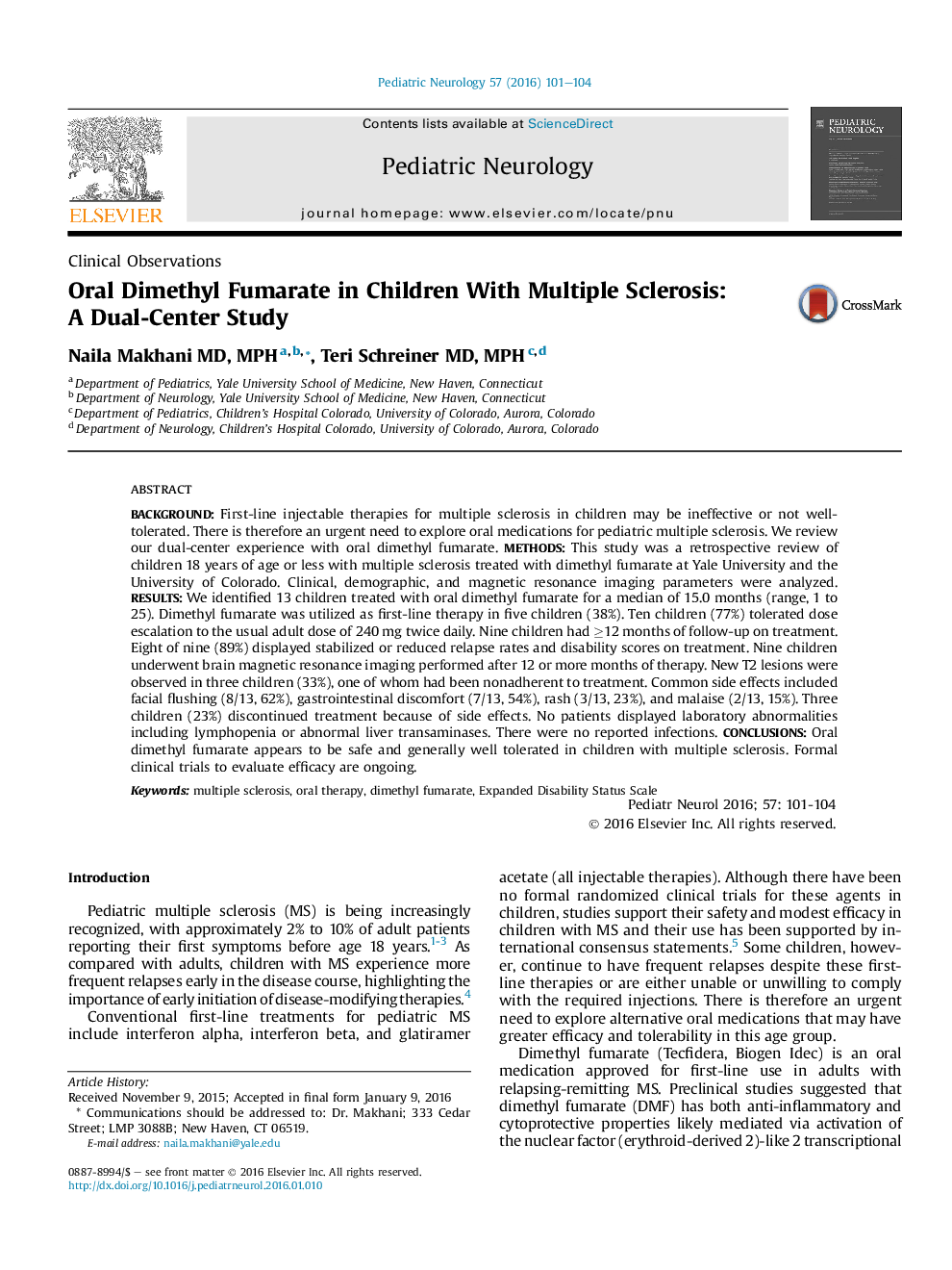| Article ID | Journal | Published Year | Pages | File Type |
|---|---|---|---|---|
| 3084396 | Pediatric Neurology | 2016 | 4 Pages |
BackgroundFirst-line injectable therapies for multiple sclerosis in children may be ineffective or not well-tolerated. There is therefore an urgent need to explore oral medications for pediatric multiple sclerosis. We review our dual-center experience with oral dimethyl fumarate.MethodsThis study was a retrospective review of children 18 years of age or less with multiple sclerosis treated with dimethyl fumarate at Yale University and the University of Colorado. Clinical, demographic, and magnetic resonance imaging parameters were analyzed.ResultsWe identified 13 children treated with oral dimethyl fumarate for a median of 15.0 months (range, 1 to 25). Dimethyl fumarate was utilized as first-line therapy in five children (38%). Ten children (77%) tolerated dose escalation to the usual adult dose of 240 mg twice daily. Nine children had ≥12 months of follow-up on treatment. Eight of nine (89%) displayed stabilized or reduced relapse rates and disability scores on treatment. Nine children underwent brain magnetic resonance imaging performed after 12 or more months of therapy. New T2 lesions were observed in three children (33%), one of whom had been nonadherent to treatment. Common side effects included facial flushing (8/13, 62%), gastrointestinal discomfort (7/13, 54%), rash (3/13, 23%), and malaise (2/13, 15%). Three children (23%) discontinued treatment because of side effects. No patients displayed laboratory abnormalities including lymphopenia or abnormal liver transaminases. There were no reported infections.ConclusionsOral dimethyl fumarate appears to be safe and generally well tolerated in children with multiple sclerosis. Formal clinical trials to evaluate efficacy are ongoing.
